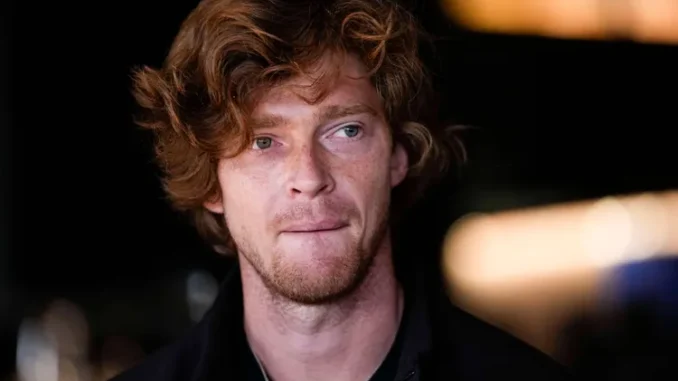
The world of professional tennis, often glamorized for its high stakes and global stage, has a quieter, more human side—one where athletes grapple with the same emotional battles as anyone else. Recently, the tennis community was rocked by Alexander Zverev’s raw and candid admission of mental health struggles following a shocking first-round exit at Wimbledon 2025. The world No. 3, defeated in a grueling five-set match against unseeded Arthur Rinderknech, opened up about feeling “very alone” and “lacking joy” both on and off the court. His vulnerability sparked a wave of empathy, with fellow player Andrey Rublev stepping forward to offer profound insights into Zverev’s challenges, emphasizing that “it’s not about tennis” but something deeper within.
Zverev’s defeat, a 7-6(3), 6-7(8), 6-3, 6-7(5), 6-4 marathon that lasted nearly five hours, marked his earliest Grand Slam exit since 2019. Speaking to the press afterward, the 28-year-old German laid bare his emotional turmoil. “I’ve never felt this empty before. Just lacking joy, just lacking joy in everything that I do. It’s not necessarily about tennis. Just lacking joy outside of tennis, as well,” he confessed. The weight of his words resonated deeply, as he admitted to feeling “very, very alone” and, for the first time, considering therapy: “For the first time in my life, I’ll probably need it.” Zverev’s struggles, he noted, have persisted since his Australian Open runner-up finish earlier this year, a period marked by a dip in form despite opportunities to claim the No. 1 ranking.
Andrey Rublev, a close friend of Zverev since their junior days and a fellow top player, offered a compassionate perspective after his own match in Los Cabos. The world No. 14, who has been open about his own battles with depression, dismissed the notion that Zverev’s struggles are tied solely to his performance on the court. “It’s a tough conversation,” Rublev said, reflecting on his own experiences. “It’s not about tennis. Tennis is something that triggers something in some players. In my case, it was me. Tennis was triggering me. And I guess in Sacha’s case, tennis is triggering him because he loves tennis. It has nothing to do with results.” Rublev’s words highlight a universal truth: the sport, for those who pour their hearts into it, can amplify deeper personal struggles.
Rublev, who reached a low point after a first-round loss at Wimbledon 2024, understands the mental toll of the game. “It’s something inside you that you have to deal with,” he explained, emphasizing that the relentless demands of the ATP tour—constant travel, high expectations, and public scrutiny—can act as a catalyst for underlying issues. “Everyone has their own struggles. It does not matter athlete or not athlete,” he added, broadening the conversation to a human level. His openness about working with a psychologist to manage his own “crazy anxiety and stress” has helped him find stability, and he hopes Zverev can find a similar path. “As soon as I started to deal myself better, the things started to get better,” Rublev shared, offering a glimmer of hope for his friend.
The tennis world has rallied around Zverev, with players like Aryna Sabalenka and Amanda Anisimova echoing Rublev’s sentiments. Sabalenka, who has worked with therapists in the past, urged Zverev to open up, warning that bottling up emotions “is just going to destroy you.” Anisimova, who took a break in 2023 due to burnout, spoke of the loneliness that pervades the pro circuit and the importance of finding trusted confidants. Zverev’s decision to withdraw from the Swiss Open in Gstaad for “personal reasons” suggests he’s taking steps to prioritize his well-being, a move that has drawn praise from peers and fans alike.
As the conversation around mental health in tennis grows, sparked by trailblazers like Naomi Osaka in 2021, Zverev’s honesty marks a pivotal moment. Rublev’s insights underscore that the sport is merely a trigger, not the root, of such struggles. “It’s not as simple as saying, ‘I’ll take a break and lie on the beach,’” he noted, acknowledging the complexity of finding balance when tennis is both a passion and a pressure cooker. With Zverev now training under Toni Nadal at the Rafa Nadal Academy, there’s hope that this collaboration, combined with professional support, will help him rediscover joy. As Rublev’s words remind us, the path to healing lies not in the scoreline but in facing the battles within.
Leave a Reply